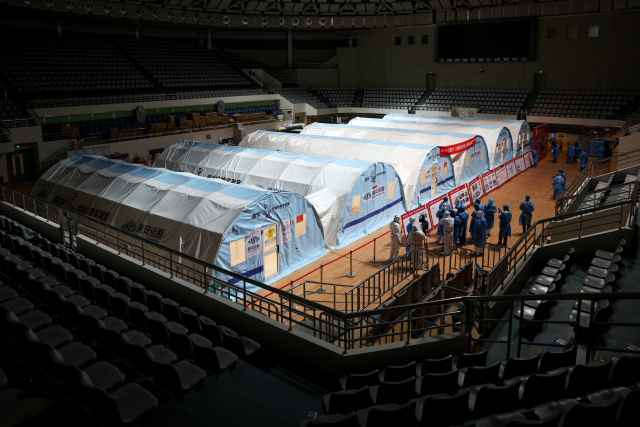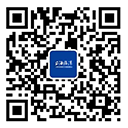Q&A: Is repeated mass COVID testing necessary in Shanghai?
Since the recent outbreak of COVID-19 in Shanghai, the city has resorted to large-scale testing to screen out positive cases.
From April 18 to 21, people living in locked down areas need to take a nucleic acid test on a daily basis. Is such an intensive testing campaign necessary? Let's hear what a health expert and an official of the city said.

Air-inflated laboratories in the Nanhui Sports Center, Shanghai's Pudong New Area on April 15. [Photo/IC]
Q: Is repeated large-scale nucleic acid testing necessary in locked-down areas in Shanghai?
A: Yes.
Gao Chunfang, director of the test processing center at Shanghai Yueyang Hospital, said after contracting the novel coronavirus, people undergo an incubation period in which the viral load is too low to be detected.
"Repeated tests can increase the probability of detecting infections in time, especially asymptomatic ones, and stop the spread of the epidemic," Gao said.
Samples for COVID tests are collected through nasal swabs, throat swabs or both, but there can be differences in the sampling process, such as the place and depth of sampling and amount of material collected. Multiple tests can reduce the risk of false negative results, she said.
Q: How can infection be prevented during large-scale testing?
A: Shanghai has called for residents to receive COVID-19 tests in batches or at staggered times, or to visit sites only when called to avoid infection, said Wu Qing, executive vice-mayor of Shanghai.
Residents have also been told to maintain a distance of 2 meters with each other, wear a mask and refrain from talking during the testing process.
Q: How can large-scale testing be made more convenient and efficient?
A: Shanghai has asked all districts to determine their exact resident populations through grid screening, and appropriately allocate medical staff to conduct tests, Wu said.
The city's testing capacity has been enhanced after air-inflated laboratories and mobile nucleic acid testing vehicles have been put into use.
At present, the maximum daily nucleic acid testing capacity in Shanghai has reached 5 million tubes.
Q: How can the demand for regular nucleic acid testing be met as the city returns to normal life?
A: In addition to the more than 200 medical institutions, which serve as stationary sampling points, Shanghai will add more temporary and mobile sampling sites in the form of kiosks or street stands to make it easier for people to take a test, Wu said.
- Address No 200 Shengang Avenue, Pudong New Area, Shanghai, China
- Zip Code 201306
- TEL +86-21-68283063
- FAX +86-21-68283000



